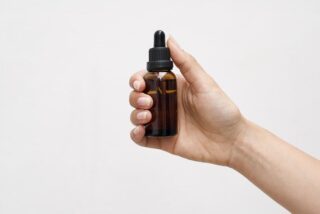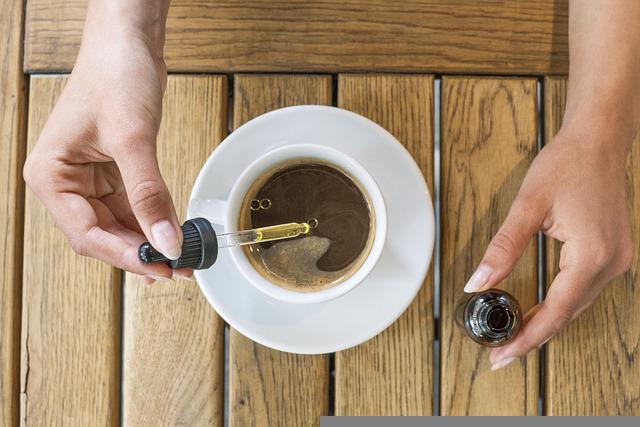Cannabinoid therapy for sleep
I have noticed consistently good results using cannabinoids for sleep disorders. I am often asked what are the top indications for cannabis therapy in my practice and insomnia would always be in the top three.
I first started to gain an interest in cannabis and cannabinoids back in 2015. One of the most common reasons that my patients were using cannabis was for various types of insomnia. Most of these patients were having very good results. That really peaked my interest because I too suffered from insomnia for a large part of my life.
 I had used various natural sleep aids but needed a change as my current medication was producing some inconvenient side effects. After receiving my medical cannabis prescription I started using a balanced THC:CBD oil which improved my sleep latency and nighttime wakeup’s within a few days. Cannabinoid therapy is now one of my most recommended treatments for various types of insomnia as it is safe, inexpensive, fast acting and effective.
I had used various natural sleep aids but needed a change as my current medication was producing some inconvenient side effects. After receiving my medical cannabis prescription I started using a balanced THC:CBD oil which improved my sleep latency and nighttime wakeup’s within a few days. Cannabinoid therapy is now one of my most recommended treatments for various types of insomnia as it is safe, inexpensive, fast acting and effective.
Cannabis can have calming or stimulating effects depending on the preparation, dose and mode of administration. I really wanted to find out what made cannabis effective for sleep and what would be the optimal way to use it for sleep. My research pointed towards a few mechanisms through which cannabinoids likely have sleep promoting effects: GABA, Serotonin and Endocannabinoid modulation.
GABA
GABA is an inhibitory neurotransmitter that generally promotes a relaxation response in the central and peripheral nervous system. It is well established that activation of GABA receptors favours sleep and many pharmaceutical drug classes, including benzodiazepines, act on GABA receptors.
Both animal and human studies have demonstrated that cannabidiol (CBD) has a modulatory effect on GABA activity. CBD can both increase and decrease GABA activity depending on neurotransmitter activity levels (if there’s too little it increases, if there is too much it decreases). This makes CBD useful for sleep disorders resulting from too little GABA activity (think of the overactive brain) without the addictive potential of GABA stimulating pharmaceutical preparations.
Serotonin
Serotonin is a neurotransmitter that is involved in mood and sleep/wake responses. Many antidepressant medications specifically target serotonin activity. Research from the early 2000’s by Bambico et al demonstrated that cannabinoid receptor agonists (things that stimulate cannabinoid receptors) have the ability to modulate serotonin activity. Low doses seemingly to raise serotonin activity while high doses have little effect.
Both endogenous cannabinoids (cannabinoids we make ourselves) and phytocannabinoids (THC, CBD etc..) seem to have the ability to modulate serotonin activity via stimulation of our cannabinoid receptors. This may explain some of the physiology involved in the sleep promotion and anti-anxiety effects of cannabis preparations. CBD seems to be particularly useful through its interplay with our endocannabinoid system.
The Endocannabinoid System
All species, with the exception of insects, have an endocannabinoid system. The endocannabinoid system is our bodies harm reduction system, keeping chemical and electrical singling in balance. Overall, stimulation of the endocannabinoid system has a calming effect and a known modulator of our sleep/wake cycle.
 Many chronic diseases that have been linked to disruption in the endocannabinoid system (Fibromyalgia, Migraine, Inflammatory Bowel Disorder) have a sleep disruption comorbidity. This sleep disruption can usually be helped with a prescription of cannabinoids such as CBD. It is certainly plausible and empirical evidence supports the theory that patients with sleep disorders have endocannabinoid disruption. Therefore, phystocannabinoids like CBD can be helpful to restore endocannabinoid tone and subsequently better sleep.
Many chronic diseases that have been linked to disruption in the endocannabinoid system (Fibromyalgia, Migraine, Inflammatory Bowel Disorder) have a sleep disruption comorbidity. This sleep disruption can usually be helped with a prescription of cannabinoids such as CBD. It is certainly plausible and empirical evidence supports the theory that patients with sleep disorders have endocannabinoid disruption. Therefore, phystocannabinoids like CBD can be helpful to restore endocannabinoid tone and subsequently better sleep.
Dosing Considerations
Cannabis is a unique medicine as it cannot be prescribed based on age and weight. Everyone has an individual response to cannabinoids due to the fact that everyone has unique endocannabinoid tone and metabolism.
Cannabinoids like CBD and THC can interact with particular medications and preexisting conditions. Some preparations of cannabis are very different in their effect and duration. Smoked cannabis has a very fast acting effect but a short duration. Edible cannabis can have a slow onset of effect but last for a long time.
Therefore it is highly recommended to have a healthcare professional knowledgeable in cannabinoid therapy work with you for the initial stages of treatment. This will ensure a safe and effective dosing strategy with minimal chance for adverse effects. With that being said cannabis is a very safe medication and when prescribed correctly can make a significant difference in those suffering from sleep disorders. Check out the Cannabis Therapy page for more information.
References
Pretzsch CM, Freyberg J, Voinescu B, Lythgoe D, Horder J, Mendez MA, Wichers R, Ajram L, Ivin G, Heasman M, Edden RAE, Williams S, Murphy DGM, Daly E, McAlonan GM. Effects of cannabidiol on brain excitation and inhibition systems; a randomised placebo-controlled single dose trial during magnetic resonance spectroscopy in adults with and without autism spectrum disorder. Neuropsychopharmacology. 2019 Jul;44(8):1398-1405. doi: 10.1038/s41386-019-0333-8. Epub 2019 Feb 6. PMID: 30758329; PMCID: PMC6784992. Gottesmann C. GABA mechanisms and sleep. Neuroscience. 2002;111(2):231-9. doi: 10.1016/s0306-4522(02)00034-9. PMID: 11983310. Moreira FA. Serotonin, the prefrontal cortex, and the antidepressant-like effect of cannabinoids. J Neurosci. 2007 Dec 5;27(49):13369-70. doi: 10.1523/JNEUROSCI.4867-07.2007. PMID: 18057193; PMCID: PMC6673093.




